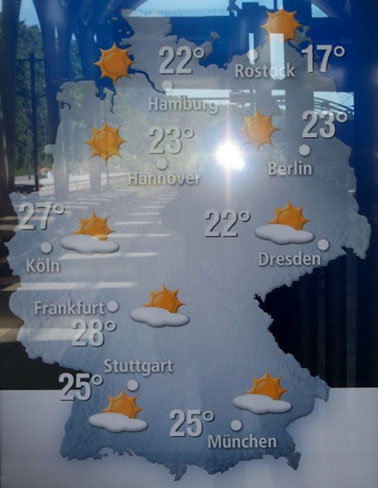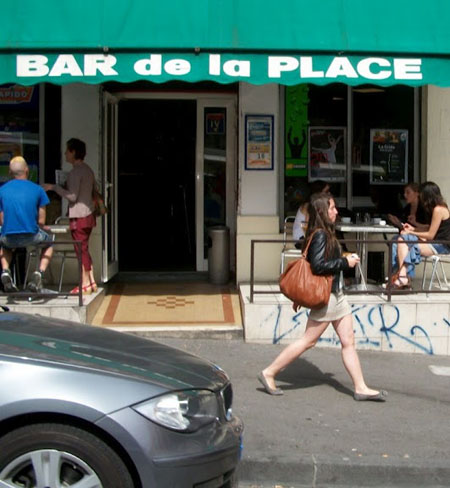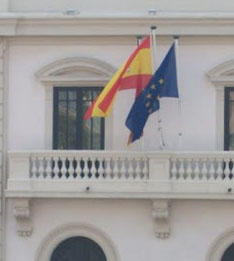Where will the new German hegemony in Europe lead this time?
Jun 4th, 2012 | By Counterweights Editors | Category: Countries of the WorldA week or so after our Toronto head office re-opened, almost all the individual notes on our two-weeks-plus  Western Europe conference circuit, in a poignant time of change, have been handed in. We now ought to be able to synthesize some broad overview of our collective findings.
For better or worse, “random impressions” is almost certainly the best description of what we finally have to offer. And to start with, we have four general impressions of where things are at in Western (and Central) Europe in the strange spring of 2012 :
(1) Our first and perhaps most striking observation is that during previous conference circuits of this sort, the by-far largest number of participants came from the USA today. Traditionally, as it were, these events have been ways in which English-speaking Americans kept in touch with their ongoing European cultural heritage.
This year the by-far largest number of participants came from Germany. This may have had something to do with a change in conference arrangers. (Although even this year’s Europe-based arrangers are ultimately owned by the same American firm as in previous years.) But certainly some of our German colleagues chose to interpret the change as a sign of current US economic struggles, and the increasingly important German hegemony in the eurozone economy.
We have some inevitable particular impressions about the rising German hegemony ourselves. As David Olive at the Toronto Star has recently reported: “Ancient stereotypes are as livid as ever … framing conversations about the crisis right across the European Union. Germans are bossy and severe. Italians are idle. Greeks are corrupt. Brits are arrogant. The French are vain. So much for 60 years of European integration.”
At the same time, having spent as long as we did with so many colleagues from various parts of the Central European hegemon today, we are not surprised that our current Canadian body-parts horror suspect, Luka Rocco Magnotta, has finally been caught by the police in Berlin. We made some good friends from Germany in the spring of 2012. And as “bossy and severe” as the stereotypes may remain, we found the Germans we met (mostly) on their most diplomatic best behaviour.
* * * *

Valencia Arts Centre, Spain – Architect Santiago Calatrava. Not exactly a public works project, but an impressive testimony to something that looks to the future.
(2) As far as what David Olive calls “the crisis right across the European Union” goes, we’d be hard pressed to report any altogether obvious up-front signs of the current economic trouble in any of the places we visited – in Italy, France, Spain, Portugal, and the UK, as well as Germany (and, briefly, the German-speaking city of Zurich in Switzerland).
There were aggressive public works projects afoot in several places. And while these projects at first looked like optimistic signs of progress, in retrospect they may well signal deeper troubles in national private sectors. Ubiquitous graffiti virtually everywhere we went also sometimes suggested abrasive political as well as benign artistic messages. Beyond this, however, we were hard-pressed to find overt signs of big economic trouble, even in southern Mediterranean locales.
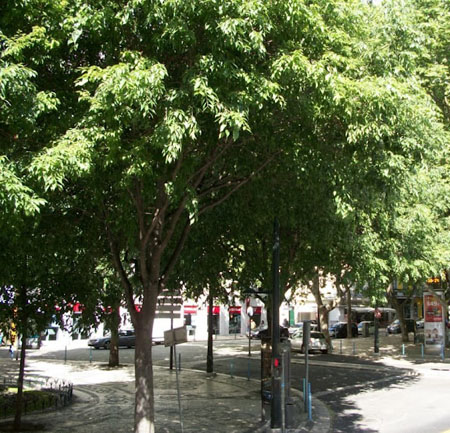
Avenida da Liberdade (Liberty Avenue) in central Lisbon, Portugal – a 90 metre-wide boulevard, 1100 m long, with 10 lanes divided by pedestrian walkways and gardens.
(3) For all the obvious subtle differences between anglophone (and francophone) North America and Western and Central Europe, we were struck again and again by the convergence of lifestyles in these two now long-related global regions. Especially for anglophone Canadians, travelling in Europe nowadays is not all that different from travelling in the United States.
Even among large numbers of German colleagues, eg, you can still get by in the spring of 2012 speaking mostly English. (And very little of French, German, Italian, or Spanish – to say nothing of Portuguese. English is a so much easier second language to learn, one German-speaking lady of Asian descent explained.) We did detect intermittent undercurrents of resentment towards English-speaking habits (not unlike what anglophone Canadians often enough bump into in Quebec?). But when you look, eg, at written public notices in all of English, French, German, Italian, and Spanish, it is also striking how similar these five languages are in the early 21st century. (Even if this similarity can seem much less obvious when you hear the spoken languages up close!)
(4) Even in Germany (though not in the UK, of course), we were impressed by how often you nowadays see the local national flag flying alongside the blue and gold-starred banner of the European Union. David Olive’s “So much for 60 years of European integration” still points to an underlying lack of democratic legitimacy in the Union project. Yet the concept has increasingly obvious attractions. And there does seem some commensurate degree of growing popular support in the “continental” countries we visited.
It may still be, eg, that “Europeans don’t even like the euro.” But for anyone travelling from Germany to Italy to France to Spain to Portugal and back to Germany again, its convenience is undeniable. (Especially if interrupted by a brief encounter with annoying Swiss francs, or even English pounds sterling!)
We would finally (we think at the moment at any rate) line up behind David Olive on this front as well: “True, the intransigence of Angela Merkel in tying harsh austerity measures to German assistance for the likes of Greece has inspired Greek resentment manifested in editorial cartoons depicting the German chancellor as a Nazi. And a contemptuous regard for the ‘lazy’ and ‘corrupt’ Southern European economies is widespread, a staple of new and reinvigorated far-right political parties from Amsterdam to Toulouse to Helsinki … But I doubt it’s twilight time for the EU. By this point next year solutions will be in place for a Europe more united and prosperous than ever.”
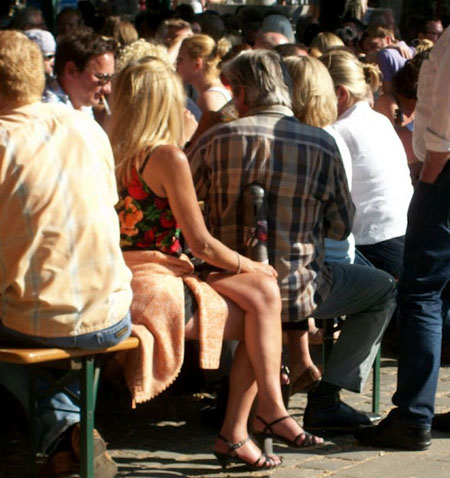
At the market beer garden in beautiful downtown Munich/Munchen, capital of the State of Bavaria in Germany today, May 2012.
And see also, such still more recent headlines as: “Euro rallies on optimism that bloc to stay intact” ; “Germany Signals Crisis Shift … Berlin Begins Outlining Conditions for Sharing More Risk With Other Countries in the Euro Zone” ; “Europe has ‘three months’ to save euro: George Soros” ; “Germany Says Spain Can Seek Aid as Rajoy Urges Banking Union” ; “Europe mulls major step toward ‘fiscal union’” ; and “Germany Seeks Financial ‘Redemption’ for Europe.”
Meanwhile, we’ll return not too far down the road, with more specific comments on the 10 different European cities and/or places where our 2012 conference circuit took us: Zurich, Milan, Marseille, Valencia, Lisbon, Vigo, Guernsey, Harwich, Kiel, and – last but by no means least at all – Munich/Munchen, capital of the old Kingdom and current parliamentary democratic German State of Bavaria.
Stay tuned. Or : Bleiben Sie dran. (And, yet again, Guten Morgen, Guten Tag, Guten Abend, Gute Nacht, and, for the moment at least, Auf Wiederersehen.)

